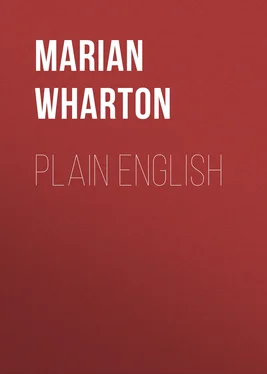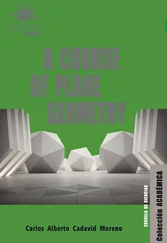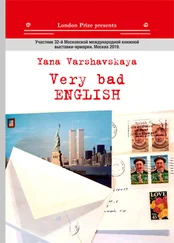Marian Wharton - Plain English
Здесь есть возможность читать онлайн «Marian Wharton - Plain English» — ознакомительный отрывок электронной книги совершенно бесплатно, а после прочтения отрывка купить полную версию. В некоторых случаях можно слушать аудио, скачать через торрент в формате fb2 и присутствует краткое содержание. Жанр: foreign_edu, foreign_language, на английском языке. Описание произведения, (предисловие) а так же отзывы посетителей доступны на портале библиотеки ЛибКат.
- Название:Plain English
- Автор:
- Жанр:
- Год:неизвестен
- ISBN:нет данных
- Рейтинг книги:5 / 5. Голосов: 1
-
Избранное:Добавить в избранное
- Отзывы:
-
Ваша оценка:
- 100
- 1
- 2
- 3
- 4
- 5
Plain English: краткое содержание, описание и аннотация
Предлагаем к чтению аннотацию, описание, краткое содержание или предисловие (зависит от того, что написал сам автор книги «Plain English»). Если вы не нашли необходимую информацию о книге — напишите в комментариях, мы постараемся отыскать её.
Plain English — читать онлайн ознакомительный отрывок
Ниже представлен текст книги, разбитый по страницам. Система сохранения места последней прочитанной страницы, позволяет с удобством читать онлайн бесплатно книгу «Plain English», без необходимости каждый раз заново искать на чём Вы остановились. Поставьте закладку, и сможете в любой момент перейти на страницу, на которой закончили чтение.
Интервал:
Закладка:
Mark the interjections in the following sentences. Notice those which express emotion and those which imitate sound.
1. Oh! Is it possible.
2. Hurrah! We have good news at last.
3. Whirr! Whirr! goes the giant machine.
4. Come! Keep up your courage.
5. What! I cannot believe it.
6. Courage! We shall yet win.
7. Bravo! Let those words ring down the centuries.
8. Ding-dong! the bells ring out the hour!
SPELLING
LESSON 3
Since there are forty-two elementary sounds used in the formation of our words and only twenty-six letters to represent these sounds, some of these letters must necessarily represent more than one sound.
Of the forty-two elementary sounds, eighteen are vowel sounds, but we have only five vowels with which to represent these sounds, so each vowel has several different sounds.
Therefore we must have a key to pronunciation to indicate the various sounds which are represented by these letters used in forming the words. When you look up words in your dictionary you will find the vowels marked by certain signs to indicate the pronunciation. These signs are called diacritical marks.
The following table gives the diacritical marks for the vowels. Study this table and learn to pronounce the words you look up. When you have determined the correct pronunciation of the word, repeat it over to yourself aloud a number of times until you have accustomed your ear to the correct pronunciation.
Different dictionaries use different keys to pronunciation. This table is taken from the dictionary which we are using in connection with this course—Winston's New Universal Self-Pronouncing Dictionary.
Key to Pronunciation
ā as in late , fade .
ä as in mar , father .
ȧ as in mask , dance .
a as in cat , had .
aw as in awl , fall .
ē as in he , feet .
ẽ as in her , verge .
e as in let , men .
ī as in line , time .
i as in tin , little .
ō as in vote , home .
ô as in orb , form .
o as in lot , odd .
oi as in oil , join .
o̅o̅ as in moon , school .
oo as in cook , foot .
ou as in out , house .
ū as in mute , unit .
u as in nut , drum .
The spelling lesson for this week is composed of words containing the different vowel sounds. Look up in your dictionary and mark all the a's in Monday's lesson, all the e's in Tuesday's lesson, all the i's in Wednesday's lesson, all the o's in Thursday's lesson, and all the u's in Friday's lesson. In Saturday's lesson note the use of w and y as vowels.
Monday
Pause
Adjective
Lazy
Quality
Advance
Tuesday
Resemble
Descend
Adverb
Interjection
Complete
Wednesday
Limit
Define
Distinct
Imprison
Civilize
Thursday
Form
Footsteps
Proof
Report
Common
Friday
Union
Under
Unusual
Summer
Commune
Saturday
Comply
Employ
Vowel
News
Lawful
PLAIN ENGLISH
LESSON 4
Dear Comrade:
We are studying in this lesson a most interesting part of our language, the words that are the names of things. If we could trace these names of things and the order and time of their coming into the language of men we would have a progressive history of mankind. Way back yonder in the dim dawn of history, men lived upon fruit and nuts. They had no knowledge of the use of fire and could not use foods that required cooking. They communicated with one another by signs. Then they discovered fire and invented the bow and arrow. They could now use fish and flesh for food and they commenced to use articulate speech. This stage has been called the Middle Stage of Savagery. With the invention of the bow and arrow, began the third stage of savagery which merged into the first stage of barbarism with the invention of pottery.
There are three stages of barbarism before we come to the beginning of the era of civilization which begins with the use of the phonetic alphabet and the production of literary records. All tribes that have never attained the art of pottery are classed as savages and those who possess this art but have never attained a phonetic alphabet and the use of writing are classed as barbarians. Civilization began with the spoken and written language and it has been well said that all that separates us from savagery is a wall of books. It is upon the accumulated wisdom of the past that we build. Without this we would be helpless.
So these various names of things have come to us with developing evolving life. As the men of the past gained a knowledge of the use of fire, as they learned to bake the clay and make various utensils; to heat and forge the iron into weapons; to conquer nature in all her phases, to feed the race, to clothe the race, to shelter the race more adequately, our language has grown in volume, strength and beauty.
The study of words and their uses is of great importance to you. Master the few rules necessary and watch your words daily. We are living in an age full of wondrous things and yet many of us have almost as limited a vocabulary as the men of those bygone days, who had never dreamed of the marvels that are commonplace to us.
As you use your dictionary watch closely the meaning of the words and choose the words that most aptly express your ideas. Listen to good English spoken as often as you can. Read good English. Mark the difference between good and bad English and gradually you will find yourself using good English naturally and continually.
Yours for Education, THE PEOPLE'S COLLEGECLASSES OF NOUNS
59.We have learned that the words in a sentence are classified according to the work which each word does. The words which assert are called verbs; the words which are the names of things are called nouns. But now we shall see that these words are again divided into classes according to the special work which they perform. Just as we may gather the people of the world into one great class, the working class, then classify them according to the industry in which they work, thus some are farmers, some teachers, some factory workers; then each class may be subdivided according to the special work which they perform, as truck farmers, high school teachers, machinists, etc.
So we find that nouns are divided into classes according to their meaning in the sentence.
In the sentence, Lincoln was a man of the people , we have two nouns referring to the same person, Lincoln and man , but they are different kinds of names. The word man is a name that may apply to any one of a million persons but the name Lincoln applies to one person only. Some nouns, then, represent a thing as being of a certain kind or class, without showing which particular one is meant. Other nouns are names given to designate a particular individual. These are called common and proper nouns.
60. A proper noun is a special name meant for only one person, place or thing.
All other nouns are common nouns.
A common noun is a name which belongs to all things of a class of objects.
Читать дальшеИнтервал:
Закладка:
Похожие книги на «Plain English»
Представляем Вашему вниманию похожие книги на «Plain English» списком для выбора. Мы отобрали схожую по названию и смыслу литературу в надежде предоставить читателям больше вариантов отыскать новые, интересные, ещё непрочитанные произведения.
Обсуждение, отзывы о книге «Plain English» и просто собственные мнения читателей. Оставьте ваши комментарии, напишите, что Вы думаете о произведении, его смысле или главных героях. Укажите что конкретно понравилось, а что нет, и почему Вы так считаете.












